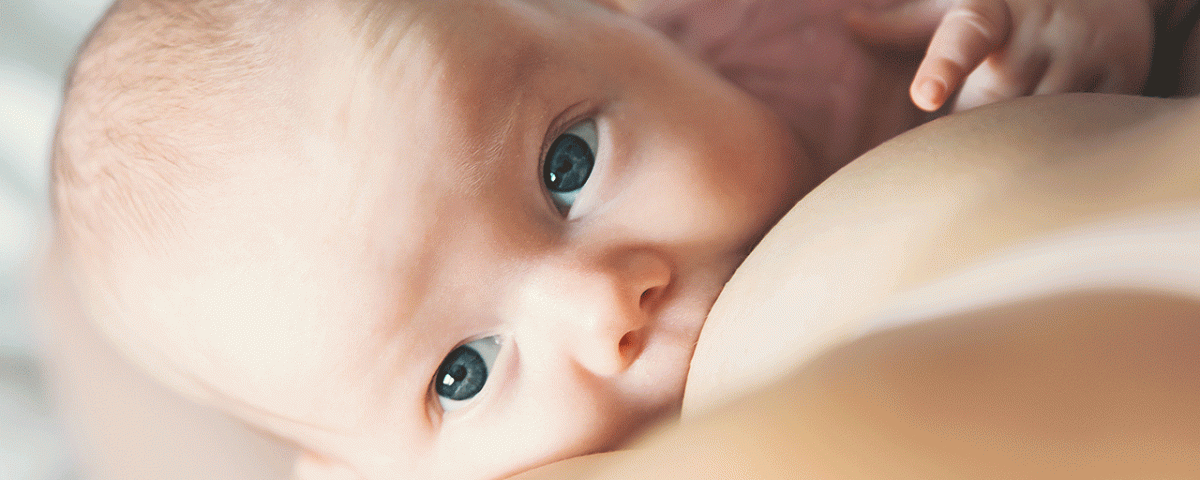Also known as crack, cocaine is a powerful and highly addictive central nervous system (CNS) stimulant that’s easily absorbed into the body. Cocaine is used in various ways, such as snorting, injecting, and smoking for a stimulating and euphoric high. Unfortunately, despite the many risks of using cocaine, it’s the third most abused drug in the world, and its abuse is common among all groups of people, even breastfeeding mothers.1 We’ve already talked about benzodiazepines and breastfeeding, so today, we’re exploring cocaine and breastfeeding and how the drug affects breast milk and the child.
Effects and Duration of Cocaine in Breast milk
Cocaine can pass through breast milk, and for breastfeeding mothers who use cocaine, the concentration of the drug is usually higher in milk than it is in blood. Cocaine has a high milk to plasma ratio, meaning the drug is more concentrated and longer-lasting in breast milk than in the bloodstream. Additionally, a cocaine high is also relatively short, but it takes the body longer to metabolize and eliminate the drug.
This means that even if the effects of cocaine have already worn off, the drug itself can linger in a mother’s breast milk and negatively affect her breastfeeding infant. Newborn babies are also naturally sensitive, so it’s no surprise that cocaine can impact them more severely. In fact, traces of cocaine can be detected in infants’ urine for over a week.2
So how long does cocaine last in breast milk? As we previously mentioned, cocaine is more concentrated in breast milk than in blood plasma, which means that the drug is even more harmful to a child should they consume cocaine-laden breast milk. In cases when an infant does drink breast milk with cocaine, the drug is broken down in the infant’s gut.
However, considering that an infant’s capacity to metabolize drugs and clear them from their system is not fully developed, even small doses of cocaine can last longer and produce more intense side effects than they would in an adult. With that said, research shows that cocaine can last up to 60 hours in breast milk.4 Keep in mind, though, that factors like doses taken and frequency of use can impact this timeline.
Moreover, under certain circumstances, mothers with a history of cocaine use but who no longer actively use the drug may safely breastfeed their children. However, according to experts, women with a history of cocaine abuse who want to breastfeed must meet these requirements:3
- They test negative for cocaine at the time of delivery
- They’ve been abstinent from cocaine for at least 90 days before delivery
- They are receiving cocaine addiction treatment
- They plan to continue addiction treatment postpartum
- They have approval from their substance abuse counselor that they can safely breastfeed
- They have engaged in and are compliant with prenatal care
- They have no other contraindications (specific situations in which a drug or procedure can be harmful) to breastfeeding
Additionally, nursing mothers should not use cocaine while breastfeeding. It’s advised that no person who interacts with the infant should use cocaine or crack at all. Naturally, infants are especially sensitive, and even having traces of the drug on one’s clothing could expose the baby to harm.
Effects of Cocaine Use While Breastfeeding on Infants
Breast milk that contains cocaine can be detrimental to an infant’s health. Cocaine's powerful stimulating properties, along with the various harmful chemicals and ingredients used to make the drug, can easily overwhelm a baby’s body. Common effects of using cocaine while breastfeeding on infants include:
- Mood swings
- Irritability
- High-pitched crying
- Nausea and vomiting
- Diarrhea
- Hypertension
- Dilated pupils
- Hypertension
- Hyperactive reflexes
- Rapid heart rate
- Shallow breathing
- Seizures
Sadly, as bad as cocaine is for anyone, many nursing mothers with cocaine addictions struggle to quit on their own, which is why professional care is so important. If you’re struggling with cocaine abuse or know someone who is, our Pompano substance abuse treatment center offers IOP and PHP treatment to not only help patients quit using drugs and alcohol but also to help them transition to a sober lifestyle.
Cocaine and breastfeeding should never mesh. Fortunately, our drug rehab is here to help. For more information about our levels of care for substance abuse treatment, call Banyan Treatment Center Pompano today at 888-280-4763.
Sources:
- SAMHSA - Key Substance Use and Mental Health Indicators in the United States: Results from the 2018 National Survey on Drug Use and Health
- Judith Lauwers & Anna Swisher – Counseling the Nursing Mother
- NCBI - ABM Clinical Protocol #21: Guidelines for Breastfeeding and Substance Use or Substance Use Disorder, Revised 2015
- NCBI - Drugs and Lactation Database (LactMed) [Internet].
Related Reading:
Long-Term Effects of Neonatal Abstinence Syndrome
Side Effects of Injecting Cocaine
Doing Cocaine for the First Time: Side Effects and Risks









